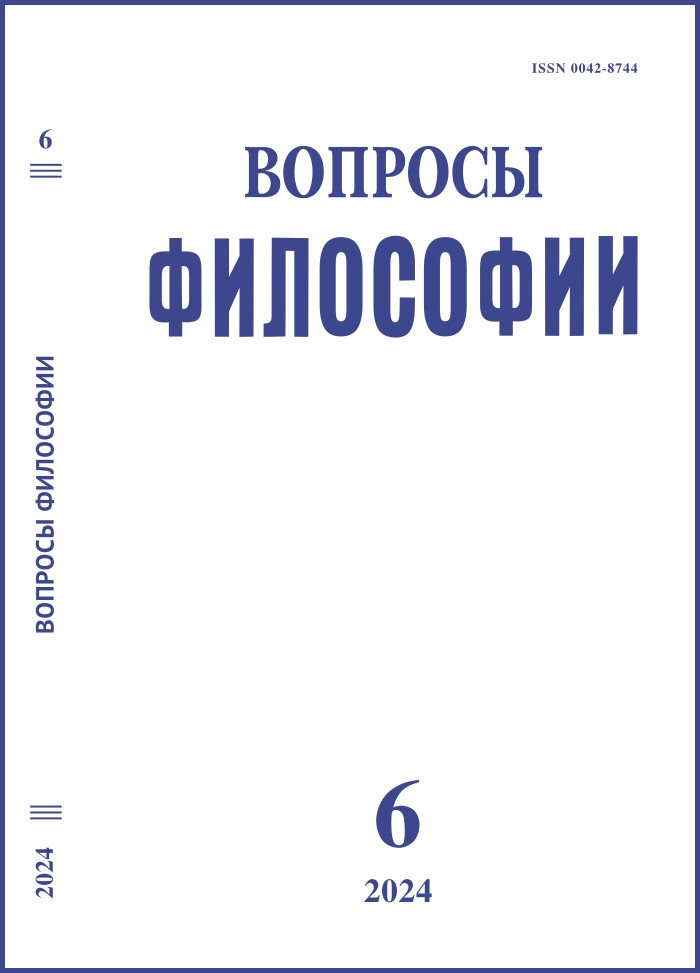Psychological Roots of Neo-Kantian Anti-Psychologism. Critical Reception of B. Russell
DOI:
https://doi.org/10.21146/0042-8744-2024-6-23-33Keywords:
Neo-Kantianism, the Marburg School, psychophysics, set theory, Calculus, Fechner, Cohen, Russel, Meinong.Abstract
The present text is a continuation of the article “Psychological Roots of Neo-Kantian Anti-Psychologism. Problem Statement” published in Voprosy Filosofii (No. 4, 2024). The named article examined the theoretical and conceptual integration of early Neo-Kantianism (represented by H. Cohen) with the psychological program of philosophy. The subject of the present article is the critical reception of Cohen’s conclusions by B. Russell. An important historical-philosophical basis for such an analysis appears to be §2 of “The Method of the Principle of Infinitesimals”, as well as the reaction to these conclusions expressed by B. Russell in “The Principles of Mathematics”. We believe that his critique is important not only because it shows the essential relationship between the positions of Cohen and Fechner, but also because it offers an independent philosophical alternative. Thus, important for the present topic, the difference between the concepts of “stretch” and “distance” has direct relevance to Fechner’s dichotomy of stimulus and sensation and precedes a productive transition
to sets (stretches) from simple scalar quantities. The elegant solution contained in the works of A. Meinong becomes an important intermediary for understanding Russell’s position on the “reality” of the infinitesimal without regard to whether this reality is expressed by means of psychophysics or Cohenian transcendentalism. The insensitivity of Cohen’s epistemology to important aspects of mathematical theory, as well as the study of these aspects, is an undeservedly neglected circumstance, the recourse to which will enrich our understanding of the psychological program of philosophy and the evolution of scientific discourse at the turn of the 19th and 20th centuries.

